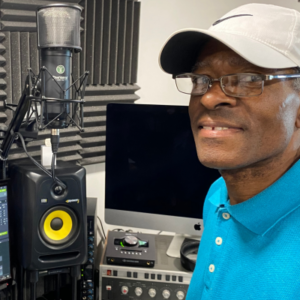Dennis Coffey was born in Detroit in 1940. His parents divorced in the mid-forties; Dennis and his sister were brought up by their mother. He took up the guitar as a youngster and formed a rock group with some of his school friends at Mackenzie High School in Detroit. Coffey made his first recording at the age of fifteen, when a local singer, Vic Gallon, asked the band to back him on a couple of tracks that he wanted to record. Coffey managed to squeeze in a pretty good guitar solo on “I’m Gone”!

During the following year, Coffey started writing songs and performing in a duo with a young singer named Durwood Hutto. Together they recorded a demo of one of their songs (“Crazy Little Satellite”) and took it to Fortune Records, where owner Devora Brown offered them a contract. Part of the deal was that Jackie Wilson’s manager Nat Tarnopol would organise a recording of the song at United Sound Studios with Berry Gordy producing. The recording was made, but, sadly, Fortune never released it.
When he left High School, Coffey played in various local bands and then came a stint in the army, after which he joined the Royaltones, an instrumental group that included Bob Babbitt on bass. The group also worked as a session band for local artists, the best-known of whom was Del Shannon. Shannon’s success meant that the musicians who played with him were suddenly in demand, and Coffey realised that he could earn his living more reliably as a session musician than as a performing artist. Bob Babbitt had already made the switch and Coffey soon joined him. Coffey made his first visit to Golden World Studios in 1965; in 1966 he took the plunge and joined Ed Wingate’s group of studio musicians. As luck would have it, Coffey was also able to play alongside a number of moonlighting session men from Motown, including Benny Benjamin, Mike Terry, Jack Ashford and James Jamerson. Coffey quickly became involved in other aspects of the studio’s work, writing songs, arranging music for strings and horns and producing, as well as playing guitar.
The natural next step was to form a production company, and this Coffey did with his business partner Mike Theodore. Theo-Coff Productions was duly set up and a deal was struck with Tera Shirma Studios in Detroit, which became the company’s recording base. Coffey took charge of the arranging and conducting, while Theodore did the sound engineering. The recordings were usually made late in the evening, so that Coffey was able to do other studio work during the day.
This set-up operated well for a while, but then Ed Wingate sold Ric-Tic Records to Berry Gordy in 1968. Fortunately for Coffey, Gordy had a plan for Golden World’s excellent studio that enabled Coffey to continue working there part-time. Gordy’s idea was to set up a Producer’s Workshop at the studio (now named Studio B) from Monday to Thursday each week, to run for two hours in the evening. The object was to develop new producers and to allow all the Motown producers to develop their musical ideas. Coffey was offered a job as a guitarist in the session band that was created for these experimental sessions. Coffey must have jumped at this opportunity, which allowed him the freedom to continue working at other studios or to work with the Funk Brothers in Motown’s two studios if required.

One of the best and earliest songs to emerge from the Producer’s Workshop was “Cloud Nine”, for which Coffey developed an intro that is immediately recognisable, using a wah-wah pedal to create a “psychedelic” effect throughout the song. The wah-wah sound effect had been popularised by Jimi Hendrix on the Pop charts but the pedal hadn’t featured much in the R&B field. Coffey also introduced the use of Echoplex tape-loop delays and other effects that deliberately distorted parts of the recording. Unsurprisingly, the success of “Cloud Nine” meant that Coffey was now in demand more generally at Motown, as producers including Norman Whitfield wanted Coffey to play on their recording sessions. Holland, Dozier, Holland wanted him too. He frequently joined the session band at H-D-H’s Tower Studios to play on Invictus and Hot Wax recordings. Amongst his credits there are “Give Me Just A Little More Time”, “Band of Gold” and “Want Ads”, three of Invictus/ Hot Wax’s biggest hits.

At Motown, Coffey played on “Nature Planned It” (The Four Tops), “1990” (The Temptations), “Boogie Down” (Eddie Kendricks), “Me’n Rock’n Roll Are Here To Stay” (David Ruffin), “Hell Up In Harlem” (Edwin Starr), “Cosmic Truth” (The Undisputed Truth), “California Sunset” (The Originals), and “I Want You” (Marvin Gaye.
The decision that Coffey had made in 1966 to make session work his main focus did not mean that he turned his back on recording his own material. Between 1969 and 2018, he released eighteen albums, of which four entered the charts, plus ten singles, eight of which made chart entries. His 1969 recordings on Maverick were made with the Lyman Woodard Trio (Lyman Woodard, Andrew Smith and Bob Babbitt), which then became the Dennis Coffey Trio (as a four-piece band!).
His first two solo albums were released on the Sussex Records label in 1972 and 1974. The first was engineered at GM Studios in Detroit, the second was recorded at Crystal Sound in Hollywood, Los Angeles.

Coffey’s 1972 album for Sussex

Coffey’s 1974 album for Sussex
His first hit at Sussex had come just prior to that, with the release of the single “Scorpio” in 1971, which earned him a gold disc for sales of over one million units and also led to an appearance on the T.V. show Soul Train. Coffey was the first White artist to receive that honour. The single is actually credited to Dennis Coffey and the Detroit Guitar Band, a group that he had formed in 1970 with Jack Ashford, Joe Podosek, Ray Monette and Bob Babbitt. The band built on this success over the next three years with a series of recordings of funky, stylish dance instrumentals that owe a debt to the work of Isaac Hayes.

When Sussex folded in 1975, Coffey moved to Westbound, where he released two more solo albums in 1975 and 1977. The tracks are a mixture of Funk and Soul, and the quality of Coffey’s guitar-playing shines through.

Coffey’s 1975 Westbound album

Coffey’s 1977 album for Westbound
He was also able to play as a freelance session guitarist for other labels. In 1976 and 1977, he played on three albums for vocal groups at ABC Records. The first was “Catfish” with the Four Tops, the second was “Shake It Well” with the Dramatics, and the third was “The Floaters”, on which Coffey played sitar as well as guitar. When David Ruffin left Motown to sign for Warner Bros, he called on Coffey to play on his 1979 album “So Soon We Change”.
When he signed for Westbound, Armen Boladian had made it clear that he wanted Coffey and Mike Theodore to play a major role in respect of songwriting, arranging and producing for the label, as well as performing, and they did not let him down. While at Westbound, Coffey made a major contribution to other Westbound artists’ recordings. He produced, arranged and played on “Devil’s Gun” and “Deadeye Dick” for C. J. & Co, and played on “Let’s Get Together” for the Detroit Emeralds.

Ace Records UK issued an excellent compilation of Coffey’s Westbound recordings in 2008, “Live Wire (The Westbound Years 1975-78)”, which contains fifteen tracks. As disco music took over from Soul and R&B, Coffey and Theodore moved with the times. In 1977 they arranged and produced “Devil’s Gun” by C.J. & Co. for Westbound. The track was a hit, reaching number two on the Billboard R&B Singles chart and number one on the Billboard Dance Music chart.
In 2004 Coffey wrote an account of his musical memories entitled Guitars, Bars and Motown Superstars. He was inducted into the Michigan Rock and Roll Hall of Fame in 2010 as a member of the Funk Brothers and in 2018 as a performer/musician in his own right. Coffey has played Gibson guitars throughout his career, notably a Gibson 345, a Gibson Firebird, a Gibson ES-335, and, over the last fifteen years or so, a custom-built ES-355 that was made especially for him at the Gibson workshop in Memphis and presented to him by the company in the late 2000s as a thank-you for his loyalty to the Gibson brand.


















